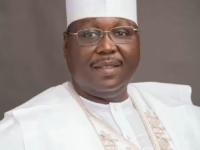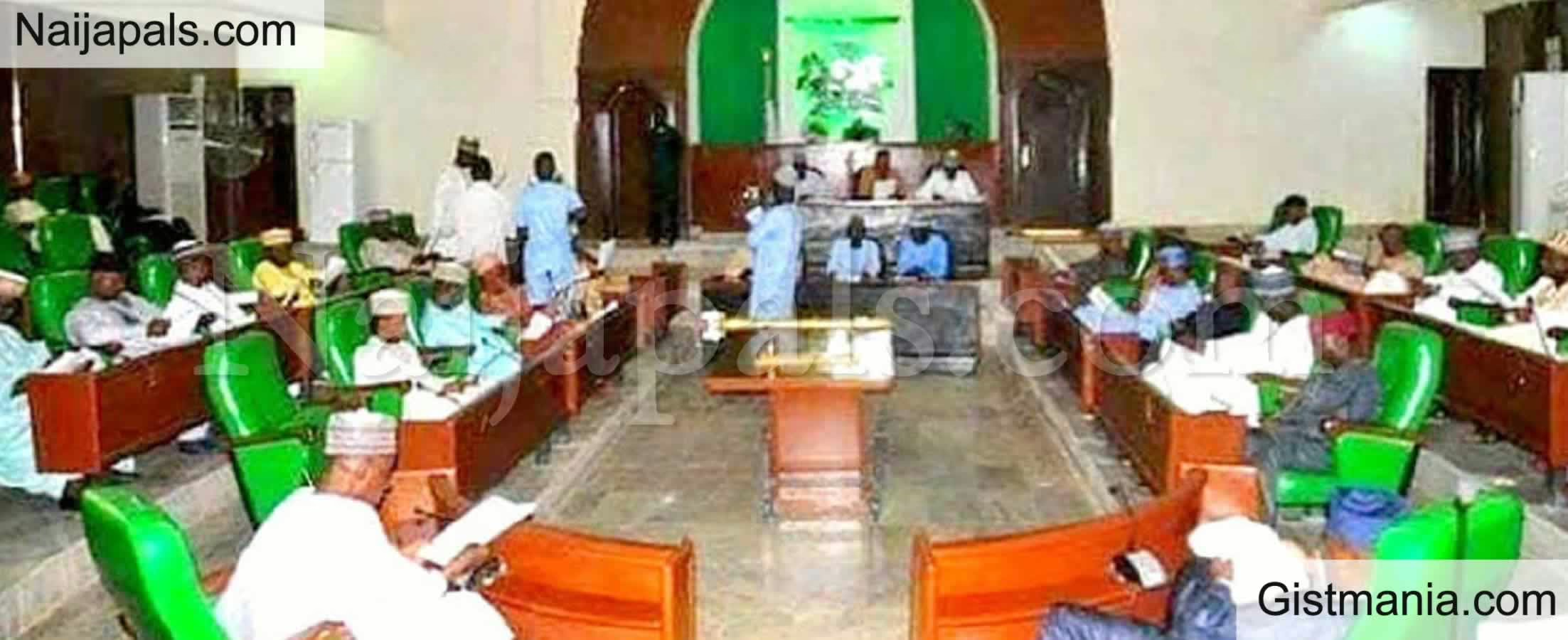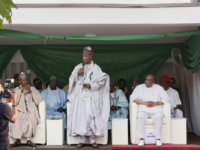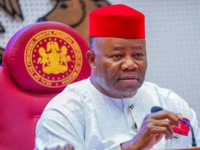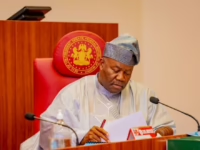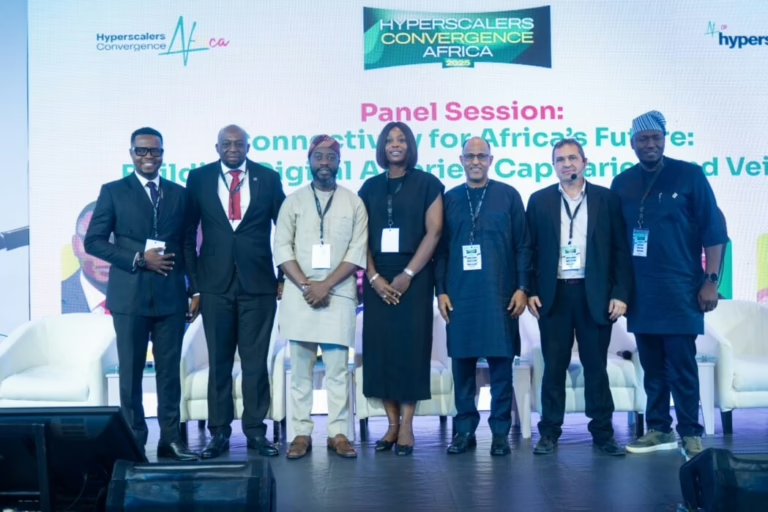Industry experts have raised alarms over Africa’s ambition to emerge as a dominant force in the global digital landscape, highlighting significant challenges posed by energy deficits and a shortage of skilled professionals.
This cautionary message was delivered during the Hyperscalers Convergence Africa 2025 event held in Lagos, themed “The Power of Convergence.”
Key participants included Bill Kleyman, CEO of Apolo.us and executive chair for Data Center Programs at Informa; Guy Zibi, managing partner at Xalam Analytics; Dr. Kashifu Inuwa Abdullahi, director general of the National Information Technology Development Agency (NITDA); Shayo Olumide, vice president of Heavy Industries, Telecoms & Technology at Africa Finance Corporation (AFC); Vivek Mittal, CEO of the African Infrastructure Development Association (AFIDA); and Ben Roberts, principal at Digital Economy Advisors.
Additional notable attendees were Oguche Agudah, head of programs at Pan Africa Fund Managers Alliance and founding CEO of the Pension Fund Operations Association of Nigeria; Hakeem Adeniji-Adele, deputy managing director at eTranzact; Eero Toivainen, Trade Counsellor for West Africa at Business Finland; Bukola Ajayi, general manager of Architecture and Enterprise IT at MTN Nigeria; Akeem Adeshina, chief commercial officer at IHS Nigeria; Roger Shutte, general manager of Infrastructure & Cloud Engineering at MTN Nigeria; Johnson Agogbua, CEO of Kasi Cloud; and Dr. Ayotunde Coker, CEO of Open Access Data Centres.
In his keynote address, Bill Kleyman described Africa as “one of the fastest expanding digital markets worldwide,” yet cautioned that insufficient energy supply threatens to stall this growth. “Connectivity is essential to modern life-it shapes how we live, work, and engage socially. This is why major global players are aggressively investing in Africa,” he emphasized.
Kleyman highlighted that the continent’s data center energy consumption is increasing by 20-25% annually, potentially reaching 8,000 gigawatt-hours. “Success in this sector hinges on two critical factors: reliable power and bold leadership,” he stated. He also pointed out that the rise of AI technologies introduces new complexities, with server rack power densities soaring from 16 to 60 kilowatts, yet only about 10% of data centers are currently equipped to handle AI workloads. “Without effective implementation, vision remains mere fantasy,” he warned. “Africa stands at a pivotal moment to claim its stake in this digital gold rush.”
During a panel discussion focused on expanding capacity to 2,500 MW, Johnson Agogbua, CEO of Kasi Cloud, stressed that the scarcity of skilled talent might pose a greater obstacle than technology itself. “While we can address power and connectivity challenges, the real question is whether we can cultivate and retain sufficient expertise locally,” he remarked.
Roger Shutte of MTN Nigeria echoed this sentiment, questioning how the industry can not only train professionals but also ensure they remain to support indigenous enterprises and uphold digital sovereignty.
Muhammed Rudman, CEO of the Internet Exchange Point of Nigeria (IXPN), shared efforts to “localize content” and minimize dependence on international data routes. “Historically, Nigerian networks primarily served as access points to overseas content. Our goal is to anchor that content within the country,” he explained.
Dr. Kashifu Inuwa Abdullahi of NITDA outlined a pragmatic strategy for achieving digital sovereignty on a large scale during sessions on AI and policy. He emphasized that Africa’s digital transformation requires a blend of visionary ambition and step-by-step, locally tailored solutions capable of regional expansion. “Many global tech giants originated as grassroots innovations addressing local challenges,” he noted.
He called on governments, innovators, and the private sector to collaboratively develop flexible, data-informed regulations that prioritize human-centric technology use. He cited NITDA’s Intelligent Regulatory Framework as an evolving model that balances innovation with public protection.
Dr. Abdullahi highlighted Nigeria’s 3 Million Technical Talent (3MTT) initiative as a means to harness the continent’s youthful demographic into a skilled workforce. He described AI as a “greenfield opportunity” for Africa to address pressing issues in healthcare, agriculture, and small business development, rather than merely refining existing systems. Additionally, he mentioned government efforts to close funding gaps through new public-private partnership mechanisms and the creation of a National Digital Public Infrastructure integrating identity, payment, and data services.
At the summit’s opening, Temitope Osunrinde, executive director of Africa Hyperscalers, framed the continent’s digital potential alongside its challenges: “Africa accounts for 18% of the global population but holds less than 2% of worldwide data center capacity and under 1% of computing power. Moreover, 80% of our data remains hosted outside the continent.”
He pointed to accelerating investment trends, with global data center vacancy rates dropping below 1%, and highlighted infrastructure expansions by Meta, Google, Visa, Equinix, Raxio, Digital Realty, and Nvidia.
However, Osunrinde cautioned that approximately 600 million Africans still lack access to electricity, even as new data centers demand power comparable to that of small urban areas.
“The challenge extends beyond electrifying homes to energizing Africa’s digital economy,” he stated. “Governments must expedite regulatory approvals, foster competitive telecom markets, and promote renewable energy adoption. Considering that equipment accounts for half the cost of data centers, enabling tax-free importation could have a transformative impact.”
A recurring theme throughout the conference was that Africa’s digital evolution depends not solely on capital infusion or technological advancements but on harmonizing power infrastructure with policy frameworks, aligning talent development with regulatory environments, and bridging public ambitions with private sector execution.
Other distinguished speakers included Otuya Okecha, CEO of FibreSol; Abayomi Adebanjo, Legal Director at Equinix West Africa; Marco Rebecchi, Nokia’s West Africa country manager; Josephine Sarouk, managing director of Bayobab; Lanre Kolade, managing director of Koltronics Nigeria and former group managing director of Csquared; Gbenga Adegbiji, CEO of Geniserve; Tola Talabi, CEO of Elektron Energy; Snehar Shah, CEO of IX Africa Data Centres; and Karim Amer, Head of IP Business for North, West & Central Africa at Nokia.
Africa Hyperscalers, the organizer of Hyperscalers Convergence Africa, serves as a premier pan-African platform for digital infrastructure intelligence and market engagement, connecting leaders, policymakers, and investors to collaboratively shape the continent’s digital future.










